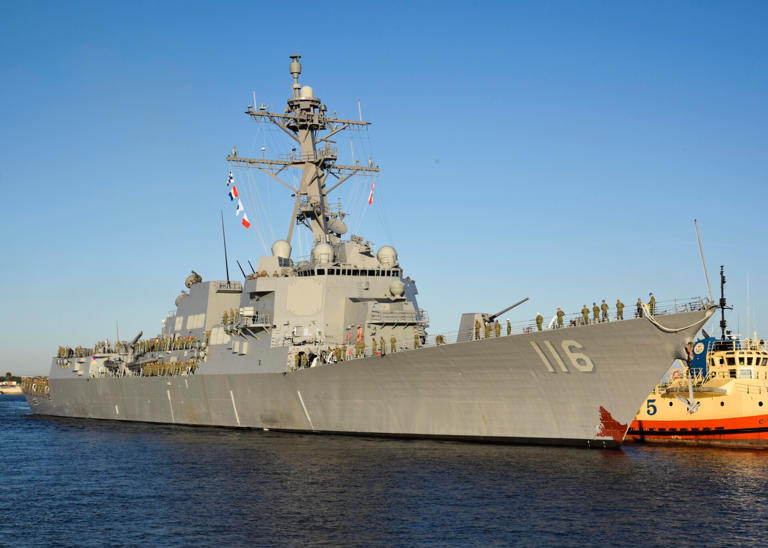The Americans are sending F-16 and F-35 fighters to the Gulf, along with the “Thomas Hudner” missile destroyer, as announced by the Pentagon.
The US Air Force deployed A-10s to the Middle East in the first week of July and F-16s on July 14. According to US officials, the intention is to increase the capability of the US military as a “deterrent” against Iran . F-22 aircraft are also being deployed in the region to deal with Russian fighters stationed in Syria, as announced by US Lieutenant General Alexis Grinkevich. “Russia’s recent increased activities in Syria are also related to Russian-Iranian cooperation in the Ukraine war, but also Moscow’s effort to expel American forces from Syrian territory,” Grinkevich added. About 900 US troops are currently stationed in eastern Syria to fight the Islamic State terrorist group.
It seems that after the war in Ukraine, other fronts in the region are starting to open dangerously. The Americans are determined to send a clear message, to make a show of strength both to Moscow and to Tehran.
However, the United States emphasizes how it wants to defend American interests in the Gulf along with free navigation. Earlier this month, Iranian speedboats attempted to seize two merchant ships in the Strait of Hormuz. In both cases, the US Navy intervened to remove the Iranians.
Tehran had already caused an uproar in May with attacks on foreign oil tankers. A fleet of high-speed boats belonging to Iran’s Revolutionary Guards Navy (IRGCN) forced a Greek-owned tanker to change course and enter Iranian territorial waters. “We call on Iran to stop these destabilizing actions that threaten the free flow of oil through the Straits of Hormuz, on which more than one-fifth of the world’s oil supply depends,” a Pentagon official said.
In this context, the US 5th Fleet in the region is also experimenting with the use of more unmanned surface vessels in the Gulf. It’s also unclear what the rules of engagement are for the new warplanes the US is sending. Iran has spent decades harassing foreign vessels as well as US forces in the Gulf. But there is now a perception that while there may be “warning shots”, no one would want a real conflict in the region
The nuclear program
The question raised by these developments is, of course, whether “Moscow and Tehran will receive the message or ignore it”, military analysts emphasize. But the point is there: Iran’s nuclear program is currently barely discussed, but that will change in October as sanctions against Tehran’s ballistic missile program expire. Like other Western countries, the EU will likely maintain sanctions, punishing Iran for selling drones and missiles to Russia. Most likely, Iran will respond by escalating its nuclear program.
Although Tehran blames the United States, it says it is ready for new negotiations, with the aim of reviving the agreement on the Iranian nuclear program. The agreement was signed in July 2015 with China, France, Germany, Russia, the European Union, the United Kingdom and the United States, but Washington withdrew in 2018. The then US president even reimposed unilateral sanctions on Iran, increasing tensions between the two countries. Talks on reviving the agreement resumed in Vienna two years ago, but no progress has been made since the last round of talks in August 2022.
American-Russian conflict
However, the atmosphere has been charged lately, as there are speculations about possible military action by Israel against Iran, perhaps with the blessing of the United States. However, at a time when Saudi Arabia has restored its relations with Iran, this would lead to a generalization of the conflict.
As Melvin Goodman, Professor of Government at Johns Hopkins University, says, everything will depend on the outcome of the war in Ukraine: “A prolonged confrontation between Russia and Ukraine will revive the possibility of a major European land war, even a direct Russian-American confrontation…The The United States must understand that the current military spiral must end before it goes to war with Russia. Only talks between Washington and Moscow could potentially identify possible compromises in the European theater, which will require security guarantees for both Russia and Ukraine.”



